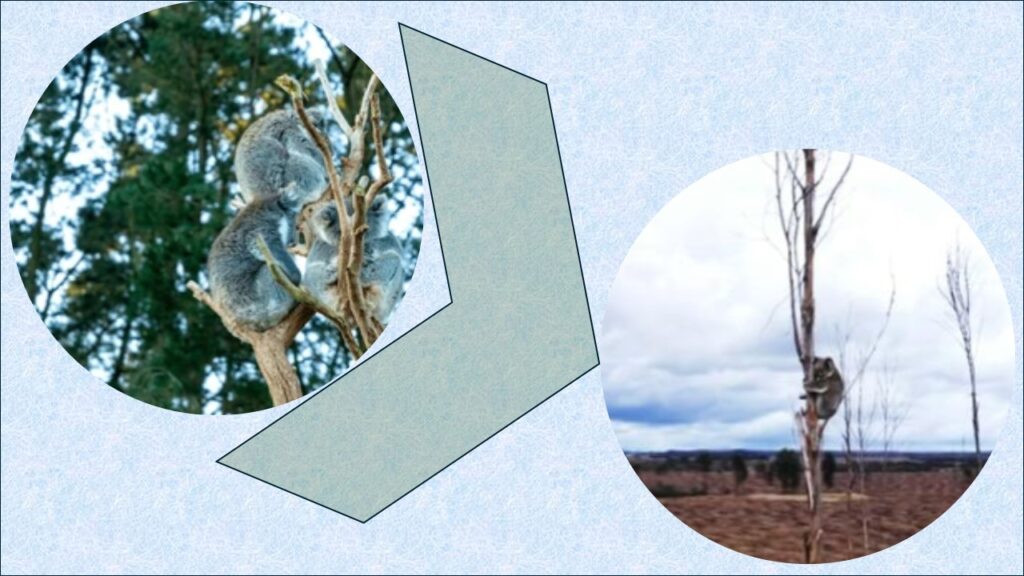The unethical and brutal death of dozens of koalas during a logging campaign in South Australia sparked a rush of new legislation and petitions to ban logging and to hold those responsible criminally accountable. This leads me to think about a bigger ethical question – how many deaths does it take to drive change?
Logging kills dozens of koalas
‘Government and RSPCA inspectors are investigating the logging of blue gum plantations on Kangaroo Island after the release of what the South Australian deputy premier described as “horrific” images of koalas allegedly being killed and injured,’ read the headline.
I felt physically ill at the images I saw. If you have the stomach, and I warn you they are graphic and disturbing, you can see them here and here.
Koalas are very near and dear to me, I studied them for over four years when I was doing my post-graduate studies and learned first-hand just what amazing and beautiful creatures they are. You can read more about that and interesting facts that make the koala unique on my other blog site ‘Things That Make Your Head Hurt (Episode 5, due out in April).
Logging has been temporarily halted while the investigation into the responsible company’s policies and practices is launched, but that aside, it is a great example of how people’s disregard for ‘doing the right thing when no one else is watching’ leads to unethical behaviour.
Concerned residents of the island said they tried to save at least 40 injured koalas and saw about 20 that had been killed as the plantations were cleared for agricultural use.
When no one is looking
The company, which is contracted by land owners to manage the plantation estate, said it was working in accordance with agreed-upon environmental land management practices, including an approved koala management plan. It said its spotters had identified and protected 4,000 koalas over the past 15 months and left a cluster of nine trees when a koala was spotted, as was protocol.
“Out of these discussions, our teams resolved to further increase their efforts with greater vigilance across all our workers, including additional koala spotting resources, to provide a greater focus on the protection of the local animal population,” a spokesperson for the company said.
Well, I am sorry, but it seems to me from the videos that no matter which way you turn it, the workers had no concern for these poor animals and had only one focus—mowing down the trees and if the koalas choose to stay, then that is their problem. That is just it, though; it is their problem. The koala’s instinct when it is threatened is to climb higher in the tree. Not such a good strategy when the tree is being cut down.
How many deaths does it take?
The Department of Environment was first alerted to the issues of this logging practice three years ago and again last year, but has taken little action until now. Maybe it is because the koalas on Kangaroo Island were considered a pest. Their numbers had grown to over 50,000 before the bushfires of a few years ago, which killed over 35,000 of them. The koala (unique to Australia) is struggling for survival and is now listed as a threatened species. Numbers have dropped by over 98% in the last 230 years.
While all of this was going on, the Prime Minister was quite happy to trot out Hank the koala at the ASEAN summit meeting in Melbourne. Maybe it is just me, but this whole example smells of poor ethics. We are quite happy to reap the accolades of ‘what a wonderful country this is partly because of all our unique animals like the koala, but we have done little to help their survival until now when it may be too late.
After the heat has dissipated, little more will be heard about this incident. The company will make up excuses as to how it happened, and life will go on.
It is an example of how elements of our society have become unethical in their approach and while no one is looking, there is no incentive for them to change. You may not be as passionate about koalas as I am, but there are examples in many other areas – medicine, on the roads, gun laws, or other senseless destruction of property and the environment, that cannot help but leave you asking the question, “how many deaths does it take to bring about change, and at what point do we say -this is ethically not right?” We will look at some other examples in future episodes.
Hope to see you back next time. Don’t miss out -stay subscribed. I am also interested in your thoughts. So, if you have an opinion, join the conversation and add your thoughts or any comments you have (especially if you have something nice to say!) on the social media links (Linked In or Facebook) under the article.
Till next time,
Calvin
©Copyright The Compliance Concierge March 2024

